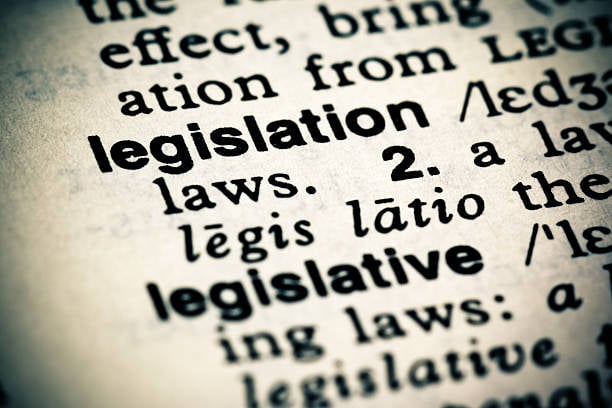The Family Law Act (1975) Part II Division 1 consists of one section, namely Section 10A. Division 1 of this legislation is the primary source for points in relation to accreditation of:
- Family counsellors,
- Family dispute resolution practitioners, and
- Other family service providers.
Part II of the FLA is the primary source for points on non-court based family services. Before we explore the FLA’s Section 10A further, let’s first understand what is accreditation? Why is accreditation important?
What is Accreditation in Family Law?
Accreditation is the independent evaluation process that assesses the quality of services. When applying this to the legal context, accreditation of legal firms means that some third-party body has assessed those firms against recognised standards.
Following this accreditation, family lawyers will be formally recognised as having a high level of competence. For example, in our firm JB Solicitors, we have a Nationally Accredited Family Law Mediator and Arbitrator. Additionally, mediators and arbitrators are types of family dispute resolution practitioners.
According to the Attorney-General’s Department website, a Family Dispute Resolution (FDR) practitioner must meet the accreditation criteria in the Family Law (FDR Practitioners) Regulations 2008.
Given below is the list for accreditation criteria:
- having appropriate qualifications and competencies,
- being suitable to perform the functions and duties of an FDR practitioner
- having access to suitable complaint mechanism that clients can use
- not prohibited under a law of state or territory from working with children
- having a national police check that is not older than four months, and that has no disclosable offences related to violence to a person
- having professional indemnity insurance cover
- meeting the ‘working with children’ requirements in the state or territory that they intend to provides services

Role of Family Dispute Practitioner
The primary role of a Family Dispute Practitioner is to assist separated or divorced parties to reach amicable agreements about parenting. Moreover, they help parties resolve parenting disputes. Moreover, family dispute resolution practitioners or FDR practitioners also help parties resolve their property disputes.
Additionally, they play an important role in family law as they promote parties to reach out of court settlements. As you may probably know, going to court is an expensive and time-consuming affair. Moreover, family law legislation requires parties to first attend family dispute resolution.
Family Law Act Legislation: Section 10A
Section 10A of the Family Law Act provides an outline of “accreditation rules”. In the first subsection, the points mentioned are related to the accreditation of persons as:
- a. Family counsellors
- b. Family dispute resolutioners
- c. Accreditation of persons to perform other roles prescribed by regulations
As we have outlined above, family disputes resolutioners are professionals who help two separated/divorced parties land mutual agreements and resolve parenting or property disputes.
On the other hand, family counsellors in the family law system help parties who are affected by divorce or separation to deal with personal or interpersonal issues. Moreover, these issues could be related to children and parenting.
Instances that Section 10A Deals With
The second part under this section of the Family Law Act mentions some instances that the Accreditation Rules deal with, such as:
- 2a. The standards that persons who wish to be accredited must meet;
- 2b. Who is responsible for determining if a person meets the Accreditation regulations;
- 2c. how accreditation is to be recognised (for example, by establishment of a register or other method); and
- 2d. the standards and other obligations that accredited persons must continue to meet to remain accredited; and
- 2e. who is responsible for monitoring compliance with ongoing requirements; and
- 2f. the consequences of accredited persons failing to comply with the provisions of this Act; and
- 2g. the obligations of accredited persons in relation to the monitoring of their compliance; and
- 2h. how and by whom an accredited person may have his or her accreditation (or recognition of that accreditation) suspended or cancelled; and
- 2i. review of decisions to refuse, suspend or cancel accreditation (or recognition of accreditation); and
- 2j. the process for handling complaints involving accredited persons; and
- 2k. who may deliver recognised training to accredited persons, and
- 2l. dealing with individuals or other persons who make false or misleading representations about a person’s status as an accredited person.

Why Is it Important to Seek Legal Advice from Accredited Lawyers?
We have explored Part II, Division 3 of the FLA that discusses accreditation rules. Finally, let’s discuss the importance of seeking advice and support from accredited family lawyers.
Most importantly, they are best placed to negotiate better results and outcomes for any particular family law matter. Because they provide high-quality services, parties need not attend family courts, and can resolve their disputes by themselves.
Furthermore, mediation and arbitration are extremely important. Through mediation, parties are more in control, and they can dictate terms. On the contrary, legally binding court orders may not always benefit you or be suitable to your needs.
Contact Us
Mediation and arbitration offer flexibility which is important when dealing with critical matters like parenting or property disputes. Moreover, family law disputes involve many different issues and can involve various parties including parents, children, elders, relatives etc. Mediation can help all parties to reach amicable conclusions.
If you require the support of accredited family law mediators or arbitrators, please do not hesitate to contact our law firm. Lastly, to read about other Acts published in the past, click here. Moreover, if you wish to send an enquiry, click here.
